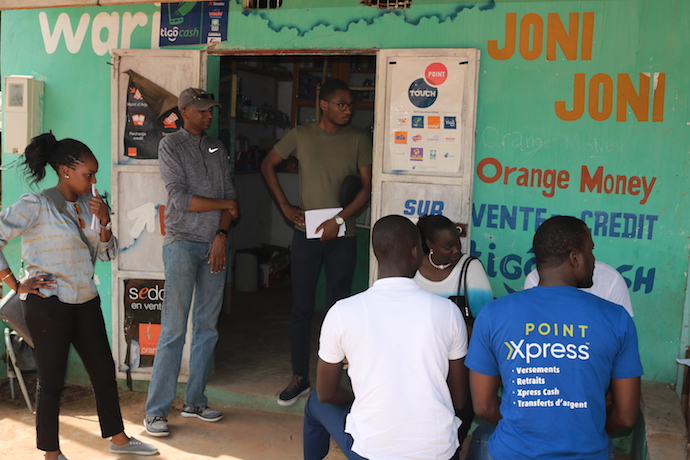
[ad_1]
In September 2018, Orange Money celebrated the tenth anniversary of its launch in December 2008 in Côte d'Ivoire. Orange Money is currently offered in seventeen African countries, has forty million customers, of which thirteen million use the service each month and reached 26 billion euros in transactions in 2017.
Read also the article: E- Money: Expresso defies competition and launches into Mobile Banking
In Senegal, where the launch of Orange Money took place in April 2010, it had 1.3 million active users in the first half of 2018 and the service that allowed only deposits and withdrawals of money, the purchase of credit telephone and the payment of bills has evolved a lot. Thus, in terms of money transfer, it is also possible to transfer money to a third party with an Orange Money account.
However, the most innovative dimension is undoubtedly the payment of services via a mobile phone that allows to pay bills for water, electricity, telephone, Internet, etc. but also to buy goods and services in restaurants, shops, big or small, gas stations, etc. or to pay tuition fees in schools, as well as salaries and even taxes. In addition, since the beginning of 2016, Orange Money has obtained approval from the Central Bank of West African States (BCEAO) for the Côte d'Ivoire, Mali and Senegal and the Central Bank of the Republic of Guinea (BCRG), which allows it to make mobile banking in its countries.
Read also the article: Orange Money celebrates a decade of financial innovation in Africa and confirms its position as a major player in mobile money
The main advantage of obtaining this status is not to be obliged to affiliate with a commercial bank to operate and to be able to grant loans in the context of micro-credit operations. In Senegal, customers with an Orange Money card can withdraw money directly from ATMs belonging to banking institutions affiliated to the interbank electronic banking group of the West African Economic and Monetary Union (GIM). UEMOA) and make transactions between their bank account and their Orange Money account.
However, there are some obstacles to the development of mobile money such as the low or even lack of interoperability between the platforms used by the various operators, which severely limits access and use of these financial services, or exclusivity agreements that mobile operators may sign with a particular service provider and that effectively prohibit the customers of other operators from trading with these service providers.
The success of Orange Money should not make us forget that mobile money was born in Kenya with the launch of M-Pesa by Safaricom before spreading across the African continent. Its success can be explained by the low rate of banking and the weak deployment of postal networks, which constitute a barrier to financial inclusion and economic development. However, the eruption of digital in this sector causes major disruptions with the one hand telecommunications operators who now compete with banks and other banks that offer mobile applications.
In Senegal, faced with Orange Money, the offers are multiplying and the services are diversifying. Tigo Cash, Joni Joni, E-money Expresso, Wari, Tam Tam, PosteCash, Intouch and others are vigorously competing for shares in a booming market.
These strong tendencies pose with keenness the necessary coordination of regulatory activities, in a context of convergence of the digital economy, which until now depend on authorities and specialized bodies. If it is too early to designate the winner of what promises to be a titanic fight, it is clear that he who will be the most innovative will triumph.
Alex Corenthin
Secretary for International Relations
Comments


[ad_2]
Source link